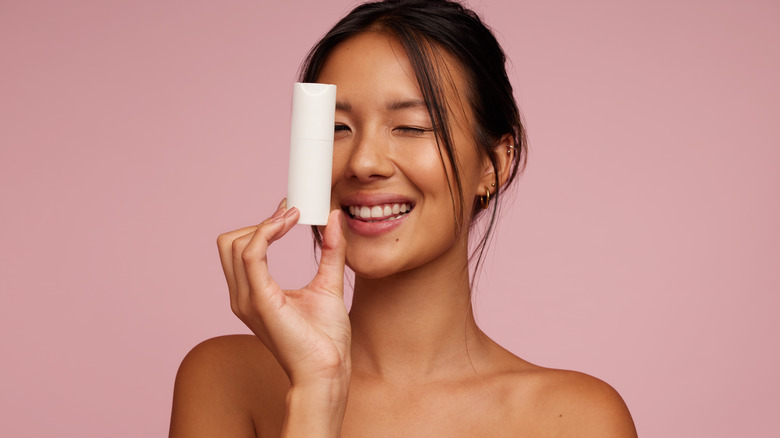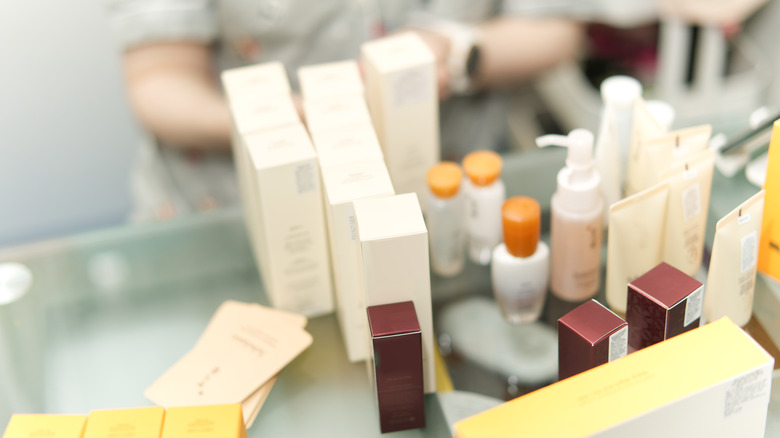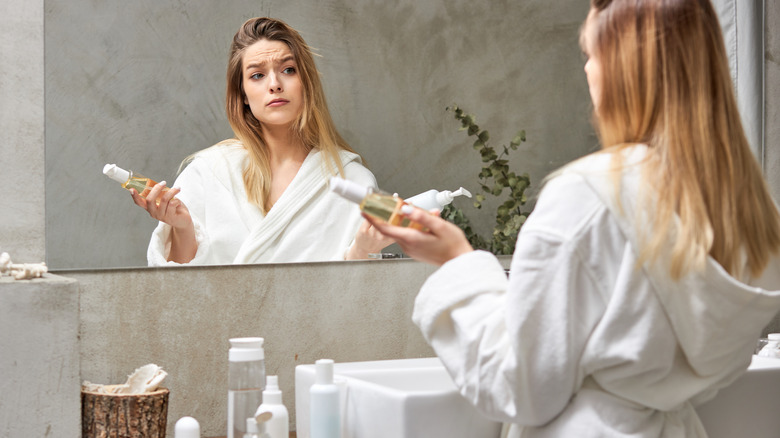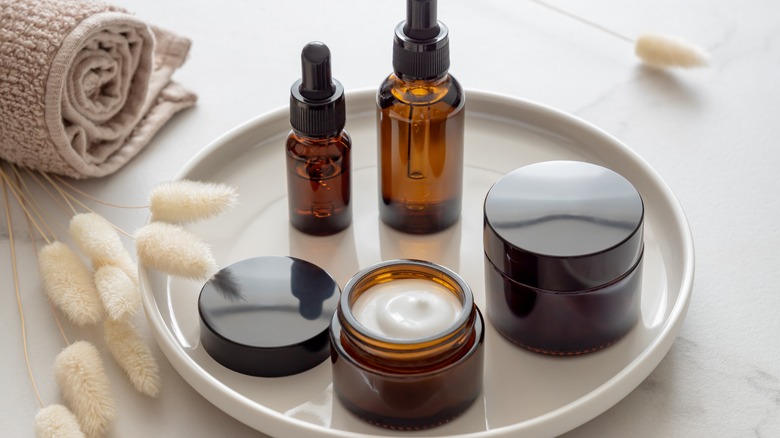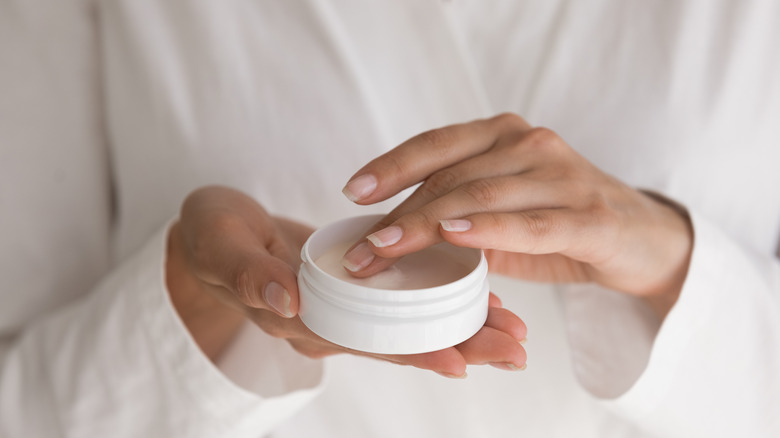Here's How To Determine The Shelf Life Of Your Favorite Skincare Products
We may receive a commission on purchases made from links.
It can be easy to accumulate skincare products, particularly if you're following a multi-step routine — like the famous Korean 10-step skincare routine that includes everything from an oil-based cleanser, exfoliant, toner, eye cream, serum, and moisturizer. Here's the perfect order for your skincare routine.
And it can be easy to get caught up when you're in the beauty product aisle or somewhere like Sephora or ULTA — foot track data reveals which customers prefer: ULTA or Sephora. But you don't want to get too many products that do the same thing and open them all at once because then you'll risk the products expiring before you can use them up. And yes, skincare products expire. There isn't one hard and fast rule that you can use for every type of skincare product to know what is past its prime but still usable vs. you really need to throw that away. But there are some things to keep in mind when it comes to the shelf life of your skincare products.
The expiration date on a lot of skincare is based on when you open it
Shelf life in the store differs from shelf life once you've opened a product. Many skincare products are designed with preservatives to enable them to sit on a shelf for at least 30 months until they're sold, per Glamour UK. The expiration countdown doesn't start when the item is made; it begins when you open the product after buying it. You can look for the period after opening (PAO) on the product itself or on the packaging; it will be an open jar symbol with a number next to the letter "M." The number is the amount of months the product is good for after it's been opened, so 12M would mean it will be good to use for a year. It's not to say that you immediately have to chuck an item once it reaches that exact date, but you should keep an eye on it and aim to use it up as close to that PAO date as possible.
If there is a little hourglass symbol with a date on the product, that's the best-before date. That's for products that don't last 30 months or more on the shelf. The US isn't required to include the best by and PAO symbols on products, though they are required in the EU, per Exponent Beauty.
Skincare products may lose their effectiveness over time
You might think that expiration dates on skincare products are a scam meant to make you buy the product more often, but that isn't the case. It makes sense that skincare products would expire; many have active ingredients. And over time, those ingredients can break down and won't work as well. Products designed to treat acne with salicylic acid or benzoyl peroxide work best for up to six months. Anti-aging products, like those with retinol or vitamin C, may not work after a year, per Baylor College of Medicine.
Skincare with natural ingredients are likely to go bad more quickly when compared to their synthetic ingredient counterparts. Same thing with water-based items compared to oil-based items, per Allure. Look for aqua in the ingredients to know if it's a water-based product. So — and this is, of course, dependent on what your skin needs in the moment — if you have two open products that do basically the same thing, like moisturize or exfoliate, you might want to consider using the natural ingredient one and the water-based one first over the synthetic and oil-based.
Expired skincare can cause damage to your skin
If you can't remember when you bought the item or if the expiration date was on the packaging you have long since gotten rid of compared to the product itself, you can use your intuition to tell if a product needs to be tossed. Does it have a different smell? Does it seem like it's separated? Is it a slightly different color than it was when it was new? Does the texture feel a bit off from what you know it should feel like? These can all be signs that it's time to buy new ones.
It's not just an issue of effectiveness when it comes to expired skincare products, it can also become an issue of safety. What can happen with older, expired skincare products "is that they can decompose," Debra Jailman, board-certified dermatologist, told Dermstore. "I have seen burns and irritation from old products. They can also harbor bacteria and cause a skin infection or even worse: they can have viruses and cause a herpes outbreak." We can all agree those are things that we want to avoid!
Be aware of what's touching your skincare and where you're storing it
One way to help make your skincare last longer is to avoid using your fingers to get the product out of the container. This will lessen the chance of bacterial contamination; instead of your fingers, use a beauty spatula that you clean after each use. Or choose a product that's delivered via a pump instead of an open jar. It's one of those weird beauty products you didn't know you needed.
Also, think about where you're storing your skincare products. It may seem logical to keep everything in your bathroom since that's likely where you'll be using the items, but that room can get warm and steamy from your shower or bath. Many skincare products will last longer if stored in a cool, dark place.
And once you've reached the point of no return with your skincare products, don't just throw it straight into the trash. See if there's a way that you can recycle it. Organizations like TerraCycle will take your empty beauty products and recycle them. Or you can look into getting refillable products; that way, when you have to get a new product, you're not also having to get a new container.
